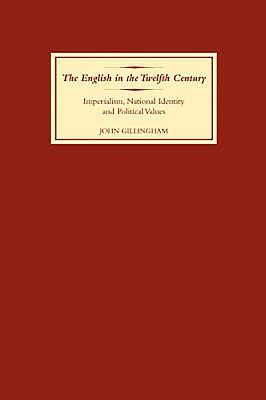
- We will send in 10–14 business days.
- Author: John B Gillingham
- Publisher: Boydell Press
- ISBN-10: 0851157327
- ISBN-13: 9780851157320
- Format: 16.9 x 24.1 x 3.1 cm, kieti viršeliai
- Language: English
- SAVE -10% with code: EXTRA
Reviews
Description
Defining essays on questions of newly-emerging English nationalism and the political importance of chivalric values and knightly obligations, as perceived by contemporary historians.
Six of the greatest twelfth-century historians - William of Malmesbury, Henry of Huntingdon, Geoffrey of Monmouth, Geoffrey Gaimar, Roger of Howden, and Gerald of Wales - are analysed in this collection of essays, focusing on their attitudesto three inter-related aspects of English history. The first theme is the rise of the new and condescending perception which regarded the Irish, Scots and Welsh as barbarians; set against the background of socio-economic and cultural change in England, it is argued that this imperialist perception created a fundamental divide in the history of the British Isles, one to which Geoffrey of Monmouth responded immediately and brilliantly. The secondtheme treats chivalry not as a mere gloss upon the brutal realities of life, but as an important development in political morality; and it reconsiders some of the old questions associated with chivalric values and knightly obligations -home-grown products or imports from France? The third themeis the emergence of a new sense of Englishness after the traumas of the Norman Conquest, looking at the English invasion of Ireland and the making of English history.John Gillingham is Professor Emeritus, Department of History, London School of Economics.
EXTRA 10 % discount with code: EXTRA
The promotion ends in 22d.06:37:07
The discount code is valid when purchasing from 10 €. Discounts do not stack.
- Author: John B Gillingham
- Publisher: Boydell Press
- ISBN-10: 0851157327
- ISBN-13: 9780851157320
- Format: 16.9 x 24.1 x 3.1 cm, kieti viršeliai
- Language: English English
Defining essays on questions of newly-emerging English nationalism and the political importance of chivalric values and knightly obligations, as perceived by contemporary historians.
Six of the greatest twelfth-century historians - William of Malmesbury, Henry of Huntingdon, Geoffrey of Monmouth, Geoffrey Gaimar, Roger of Howden, and Gerald of Wales - are analysed in this collection of essays, focusing on their attitudesto three inter-related aspects of English history. The first theme is the rise of the new and condescending perception which regarded the Irish, Scots and Welsh as barbarians; set against the background of socio-economic and cultural change in England, it is argued that this imperialist perception created a fundamental divide in the history of the British Isles, one to which Geoffrey of Monmouth responded immediately and brilliantly. The secondtheme treats chivalry not as a mere gloss upon the brutal realities of life, but as an important development in political morality; and it reconsiders some of the old questions associated with chivalric values and knightly obligations -home-grown products or imports from France? The third themeis the emergence of a new sense of Englishness after the traumas of the Norman Conquest, looking at the English invasion of Ireland and the making of English history.John Gillingham is Professor Emeritus, Department of History, London School of Economics.


Reviews